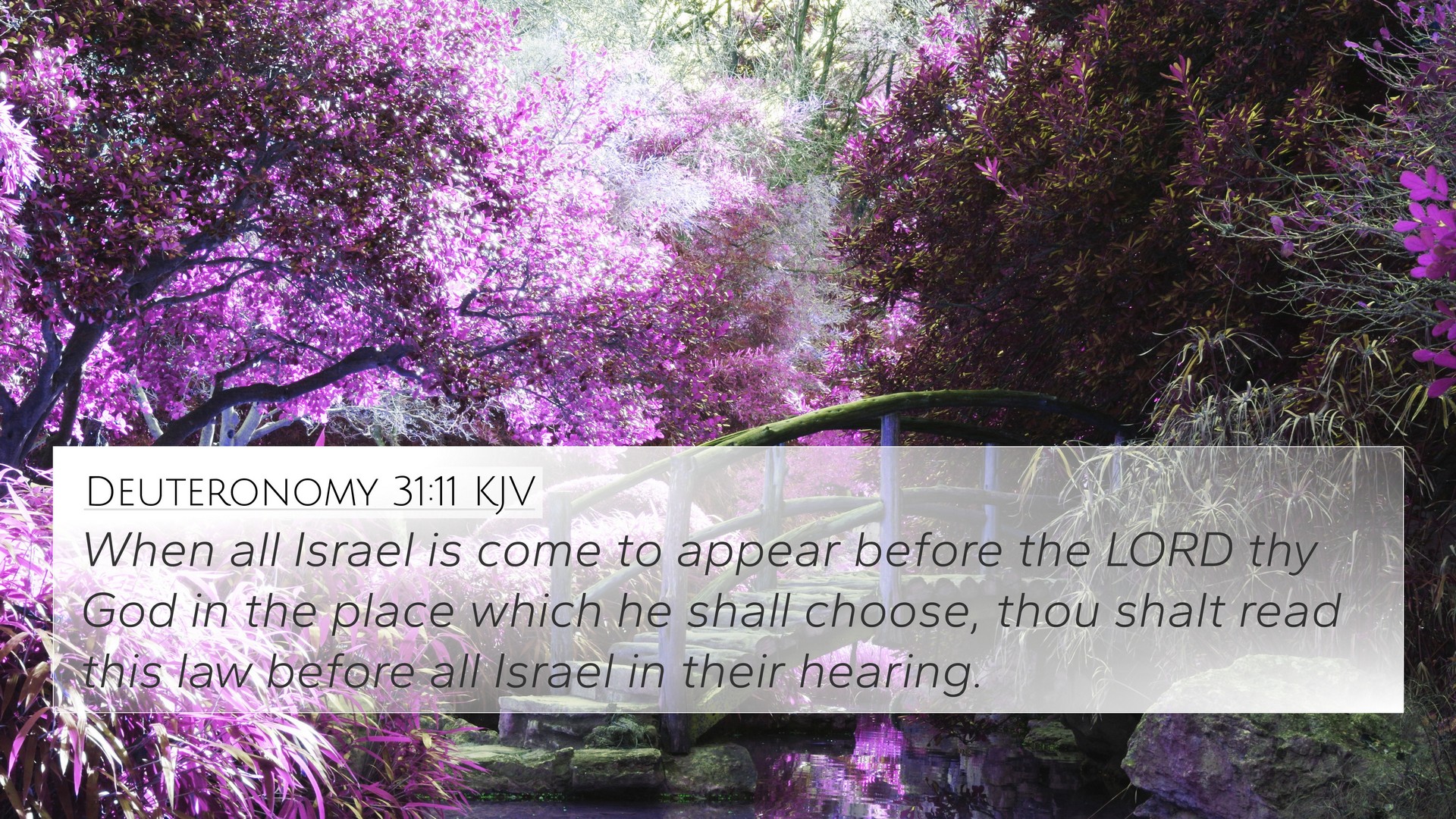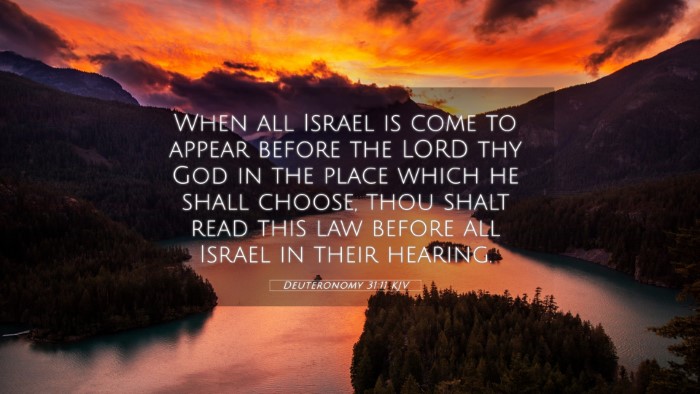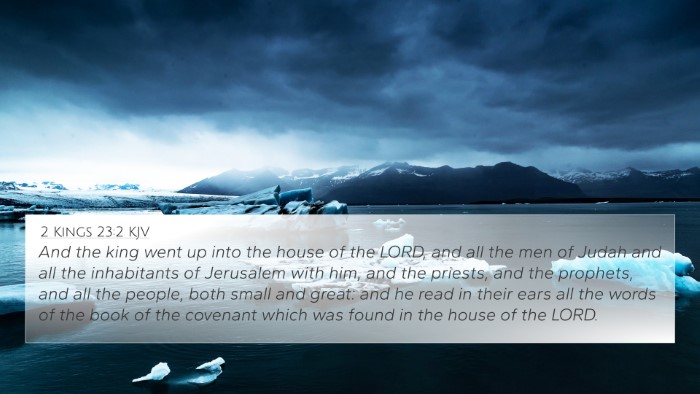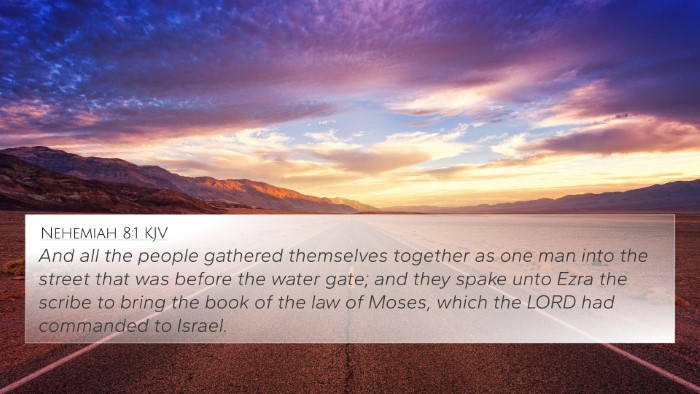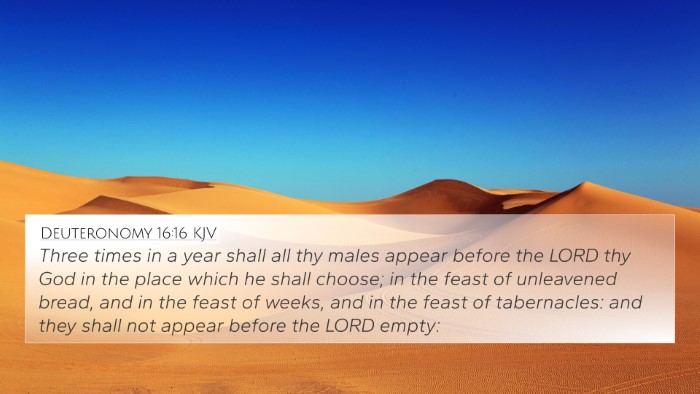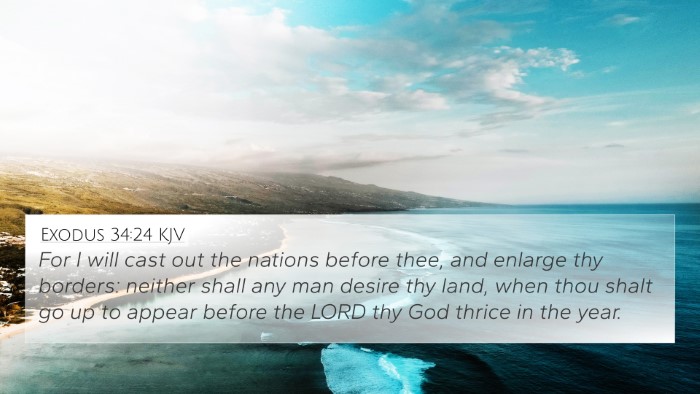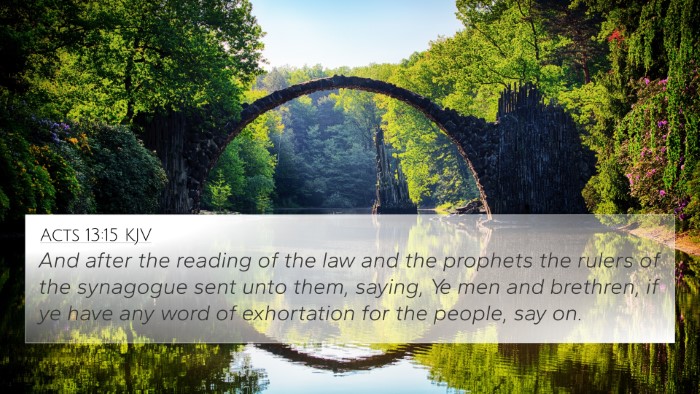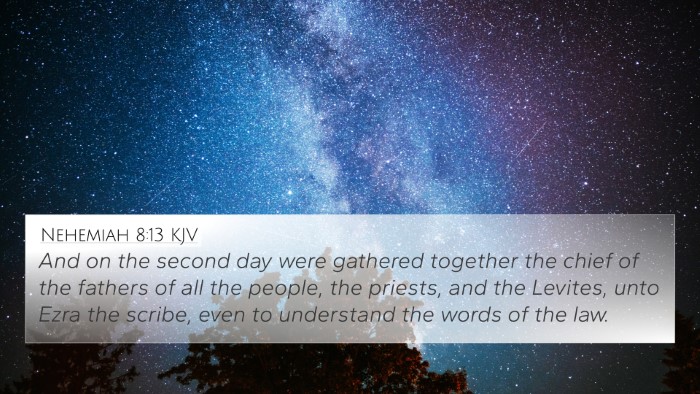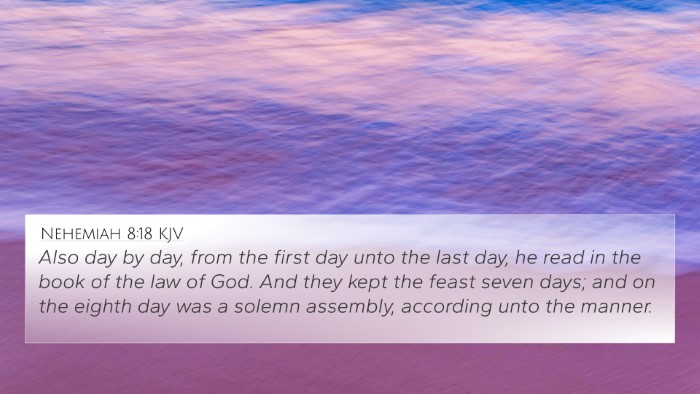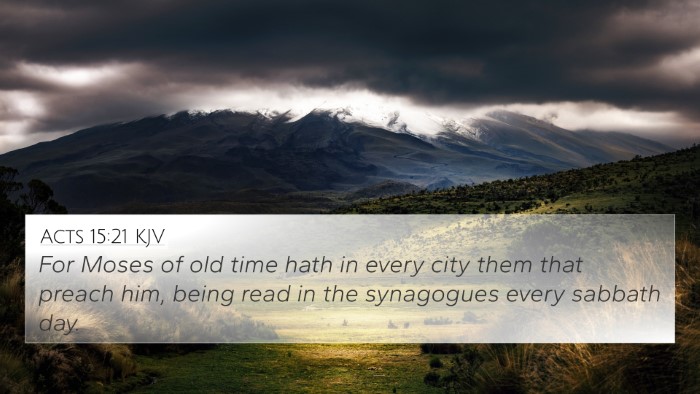Exploring Deuteronomy 31:11: Meaning and Cross-References
Deuteronomy 31:11 states: "When all Israel comes to appear before the LORD your God at the place He will choose, you shall read this law before them in their hearing." This verse is pivotal in understanding the significance of congregational worship and public reading of the Scriptures in the life of Israel.
Meaning and Interpretation
The command to read the law in the presence of the people emphasizes the importance of God's Word in guiding the lives of His followers. Various public domain commentaries provide insight into the meaning and implications of this verse:
-
Matthew Henry:
Henry highlights the solemnity of the occasion, indicating that the reading of the law serves as a reminder and a covenant reaffirmation for the people of Israel. It underscores the need for communal accountability and the importance of being familiar with God’s commandments.
-
Albert Barnes:
Barnes notes that the law was not just to be read but was to be a point of reflection for the entire community. The public reading functions as both an educational moment and a declaration of faith, meant to instill a sense of unity and devotion among the Israelites.
-
Adam Clarke:
Clarke emphasizes the practice of reading the Scriptures aloud among the people. He explains that this public declaration serves to remind the community of their duties and obligations to God, ensuring that the teachings remain relevant and actively practiced throughout generations.
Cross-References to Deuteronomy 31:11
To gain a deeper understanding of Deuteronomy 31:11, we can look at several related Bible verses that showcase similar themes of public worship, the importance of God's laws, and community accountability:
- Joshua 8:34-35: Joshua reads all the words of the law to the people, showing the continuity of this practice.
- Nehemiah 8:8: The Levites focused on giving the meaning of the law, further emphasizing the importance of understanding Scripture.
- 2 Kings 23:2: King Josiah gathers the people to hear the words of the Book of the Covenant, demonstrating a commitment to God's laws.
- Matthew 4:4: Jesus states that man shall not live by bread alone, but by every word that proceeds from the mouth of God, highlighting the sustenance provided by Scripture.
- Acts 15:21: The reading of Moses' words every Sabbath reflects the continuing tradition of engaging with God's laws.
- Romans 10:17: Faith comes from hearing, and hearing through the word of Christ, pointing to the necessity of engaging with Scripture.
- 2 Timothy 3:16-17: All Scripture is God-breathed, useful for teaching, rebuking, correcting, and training in righteousness, affirming the value of public reading.
Importance of Cross-Referencing
Cross-referencing Bible verses is an essential tool for individuals seeking a holistic understanding of Scripture. Here are several benefits of utilizing cross-references:
- Inter-Biblical Dialogue: Identifying connections between passages fosters a deeper conversation within the text, enhancing understanding.
- Thematic Connections: Exploring themes across different scriptures helps unify the overarching message of the Bible.
- Comparative Analysis: Studying parallels between verses aids in comprehending the diverse applications of biblical principles.
- Contextual Clarity: Understanding the historical and cultural backdrop of verses allows for a more nuanced interpretation.
Tools and Resources for Cross-Referencing
Engaging with cross-references can be facilitated through various tools and resources:
- Utilization of a Bible concordance to locate key terms and verses.
- Employing a cross-reference guide during study sessions to discover relationships between scriptures.
- Accessing Bible reference resources such as commentaries and study Bibles for deeper insights.
- Utilizing digital resources that offer comprehensive cross-reference materials for efficient study.
Conclusion
Understanding Deuteronomy 31:11 involves exploring the significance of communal readings of God's law as a means of fostering unity and obedience among the Israelites. The insights from various commentaries, along with the identified cross-references, demonstrate the enduring relevance of Scripture in both the Old and New Testaments. By utilizing tools for cross-referencing, readers can uncover the rich tapestry of connections woven throughout the biblical narrative, facilitating both personal and communal growth in faith.
